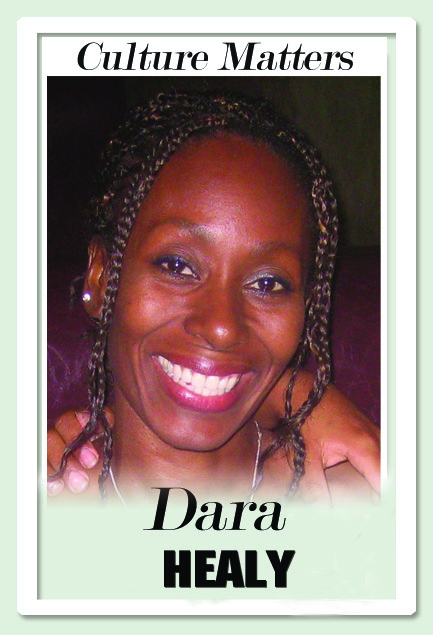Leadership – what do we want? What do we need?

Culture Matters
“Leadership...demands a commitment to serving others; skill at diagnostic, strategic, and tactical reasoning; the guts to get beneath the surface of tough realities; and the heart to take heat and grief.”
– Ronald Heifetz, Harvard University’s Centre for Public Leadership
LEADERSHIP. Some of us crave it; all of us need it. In two days we will choose people who we believe will remember that their primary responsibility is to serve us, the people who elected them.
But as a nation, have we spent any time deciding what kind of leaders we want? Should they be brilliant like Dr Eric Williams, our first prime minister, when we gained independence? For all his Oxford education, Dr Williams was able to charm the people of the nation. He wooed an already eccentric public with his quirky habits, such as stories about him switching off his hearing aid when he could no longer bear the droning of his ministers.
It may be argued that what we require from leaders is different to that era. During that period, many leaders emerged based on their ability to articulate opposition to a common enemy – British colonial rule. Alongside calls for independence, activists like Kwame Nkrumah, Claudia Jones and WEB Dubois worked to change the inequitable condition of people of African heritage across the diaspora. Independence became linked with racial injustice and the quest for new freedoms.
Today, calls for justice and equitable treatment still resonate across nations. Certainly, the interconnectedness of our world places another layer of pressure on leaders. Scrutiny by the public is relentless and often instantaneous. Last year in Bolivia, protests against alleged rigged elections led to the once populist president Evo Morales stepping down. A global health crisis is further testing politicians, as citizens use their leaders’ response to covid19 to gauge their suitability to run the country in general. In 2020, empathy, “understanding and caring for someone else’s suffering” have become an essential component of leadership.
TT, guided by Prime Minister Dr Rowley, has been commended internationally for its handling of the health crisis. His administration made difficult decisions in a timely manner and kept the virus under control. Regrettably, the issue of nationals stranded abroad remains of grave concern, in particular the communication surrounding this issue.
Jacinda Arden, Prime Minister of New Zealand, gained global admiration for her compassion during covid19 and other crises. One of the few leaders to have had a child while in office, sometimes toys are visible when she updates her nation in an old home shirt and little make-up. As one journalist put it, “...her approach isn’t just resonating with her people on an emotional level. It is also working remarkably well.”
Is that what people require of their leaders? More connectedness, more empathy? For all his genius, I suspect that Dr Williams became larger than life, eventually limiting his ability to truly connect. Significantly, although global analysis suggests that female leaders have been able to reach their communities during this crisis at a deeper emotional level, the leadership debate is not a simplistic one.
Mia Mottley, Barbados Prime Minister and Caricom chair, recently called for a new global leadership initiative, one that “not just protects the strongest amongst us, but the most vulnerable...moral leadership is important in the world today.” Experts agree that the subject transcends gender, academic brilliance or professional abilities. “Authentic leadership begins with self-awareness, or knowing yourself deeply. Self-awareness is not a trait you are born with but a capacity you develop throughout your lifetime.” Thus it is possible to learn how to empathise, how to communicate with a heightened level of emotional intelligence. Moral leadership may be taught.
Beyond elections, should prospective candidates not at least be familiar with the communities they wish to represent? How may we benefit from our shared histories? Should our education system not prepare young people for leadership? We have candidates making derogatory comments about the leader of the US, repeating the phrase “All Lives Matter” and using enslavement and indentureship on the platform. I wonder – how are we developing citizens to participate in and improve the political process?
The desire of the brilliant Dr Williams to switch off is understandable. Unfortunately, in our reality, leaders are not allowed to disconnect. Leadership. Some of us crave it; all of us need it. Beyond elections, we need to decide what kind of leaders we want. More importantly, beyond elections, we need to decide what kind of leaders we need.
Dara E Healy is a performance artist, communications specialist and founder of the NGO, the Indigenous Creative Arts Network – ICAN


Comments
"Leadership – what do we want? What do we need?"